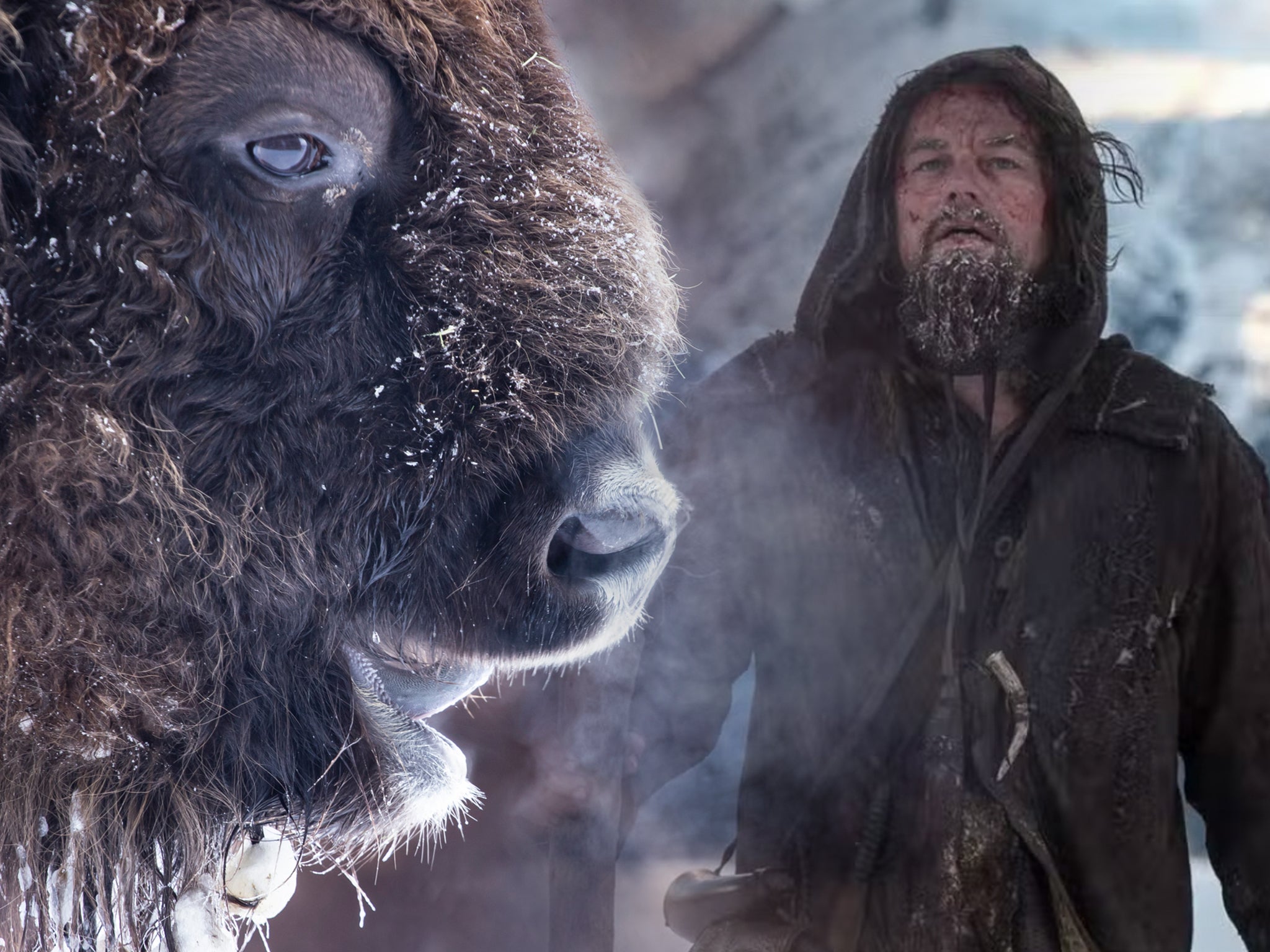Leonardo DiCaprio applauds pioneering bison rewilding project in Kent
Landmark reintroduction near Canterbury aims to tackle climate and biodiversity crises

A UK project to return wild bison to the country for the first time in thousands of years has won the acclaim of actor Leonardo DiCaprio.
The actor, who has backed other rewilding projects and is an outspoken critic of governments’ collective failure to address the global climate crisis, highlighted the positive impact the bison are already having on the landscape in Blean, near Canterbury in Kent.
The small herd of European bison were released into the large nature reserve in the middle of July, and have already begun to make their mark on the woods, creating new paths and clearings in the forest.
Over time it is hoped they will significantly change the previously human-managed landscape, boost biodiversity and help show how such reintroductions can help sequester more carbon and therefore play a role in tackling the climate crisis.
DiCaprio said: “European bison are the continent’s largest land animal and were extinct in the wild a century ago.
“They are recovering through reintroduction projects across Europe, and recently three were released into the Kent countryside in Canterbury, becoming the first wild bison to roam in Britain for thousands of years.”
He added: “The Wilder Blean project’s mission is [to] let the animals’ natural behaviour nourish the commercial pine forest into natural woodland, allowing for new plants, insects, and wildlife to thrive in this habitat.”
DiCaprio reportedly ate raw bison liver during the filming of The Revenant.
Though once endangered, American bison are now farmed and the species has somewhat recovered from the late 19th century when only around a thousand individual animals remained.
European bison were similarly hunted – to extinction in the wild – but have successfully been reintroduced in recent decades.
The £1.1m “Wilder Blean” project is led by the Wildwood Trust and Kent Wildlife Trust. The landmark scheme is the first of its kind in the UK and the trusts have told The Independent they hope to prove that the return of these “woolly bulldozers” can have impacts in other areas of the country too.
Kent Wildlife Trust said the bison, along with Exmoor ponies and iron-age pigs, “will transform the woods into a lush, thriving, biodiverse environment once more and allow us to step back from hands-on management”.
Earlier this month, bison ranger Donovan Wright said that in just a few weeks the bisons’ behaviour was changing the structure of the woodland.
He said: “The bison have already had a remarkable impact. I did not expect it to be so sudden, but literally from the first day you could sense their presence in the woods.
“We have seen them create a network of paths opening up trails of up to a metre wide. Through dense silver birch thickets that were once almost impenetrable, you can now comfortably walk along bison trails. And we are not the only ones using them, I have seen foxes, rabbits, and a slow worm sunbathing on one.
“When you follow the bison trails there is the unmistakable smell of bison in the air, and of course bison droppings. They have healthy appetites, eating up to 35kg of vegetation a day, and with that come lots of fertilising and seed dispersal.
“The birds have figured out that bison droppings attract invertebrates. They have been pecking at the bison dung, feasting off insects.”
Last year DiCaprio donated $43m to help rewild vulnerable parts of the Galapagos islands which helped inspire Charles Darwin’s theory of natural selection.
The project aims to reintroduce locally extinct species and re-establish wildlife populations “to bring back functional and resilient ecosystems”.






Join our commenting forum
Join thought-provoking conversations, follow other Independent readers and see their replies
Comments